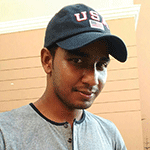
As I said in my post a week ago, I have been following the international news for two months now warning of the impending disaster that would soon befall some of the big refugee camps around the world as the Chinese Virus continues to spread.
I said I would report on a regular basis on the topic.
So far, the “carnage” has not arrived as we learn from an Op-Ed written by a young Rohingya political activist whose opinion piece was posted at the Washington Post on Thursday.
One of his complaints is that the country of Bangladesh, where the largest Rohingya Muslim communities are located at Cox’s Bazar, is that internet access is not available in the camp and was shut off last September.
However, if you are interested you can search activist/author Ali and see that he has access to the media at facebook/twitter and including here at the Washington Post on Thursday:
The world’s largest refugee settlement is in the crosshairs of a cyclone and a pandemic
On March 24, Bangladesh confirmed the first covid-19 case in the city of Cox’s Bazar. Since then, the government imposed a lockdown in the area, including for the camps where more than 1 million Rohingya refugees — myself included — are surviving. On May 14, Bangladesh reported the first two confirmed cases within the camps itself — a Rohingya refugee and a local Bangladeshi person.
The nightmare of what we and the world have feared for months had finally arrived at our doorsteps — and it couldn’t have come at a worse time.
The very next day, humanitarian groups used loudspeakers to warn us about Cyclone Amphan, a super-cyclone that was the strongest storm on record in the Bay of Bengal. The groups raised two red flags together in camps, one to signal the detection of the coronavirus in refugee camps and the other to signal the cyclone.
Wednesday night marked the Night of Decree for Muslims, the night when the Koran was first sent down from heaven to the world. Rohingya refugees in camps were waiting for the night to seek safeguard from Allah. While thousands were preparing for prayers, heavy rain and wind started to strike.
Cyclone petered out….
Cyclone Amphan may soon dwindle in Cox’s Bazar, but the monsoon season is just about to arrive. No monsoon leaves the Rohingya refugee camps without devastation. Every year, there are accounts of landslides, shelters destroyed and flooding in camps.
However, our greatest fear is still the spread of the novel coronavirus in the overcrowded camps. Every day brings new confirmed cases in Cox’s Bazar. By Wednesday, there were reportedly 11 confirmed cases in Rohingya refugee camps.
The patients are kept in the isolation facilities that have been newly constructed by United Nations agencies in refugee camps. Refugees who were in contact with those patients were placed in quarantine in Cox’s Bazar, a densely populated area where social distancing is a fantasy. [As I have said previously, we will now have the ultimate test of whether social distancing is significant or not in slowing the spread.—ed]
[….]
Every morning, we hear about new cases in refugee camps and fall deeper into fear. [But, only 11 so far, right? No deaths?—ed]
Those who fall ill with fever and coughing are afraid to go to the international NGO-run clinic in camps. There are rumors that those who are found with this virus are shot to death. Many refugees are afraid of getting tested for the virus.
I sure hope Mr. Ali and other political activists are out trying to dispel that ignorant rumor, or there could be a Chinese virus crisis at Cox’s Bazar. Sometimes I think the mainstream media is secretly wishing for that outcome.
See over 200 additional posts on Rohingya in my Rohingya Reports category.
